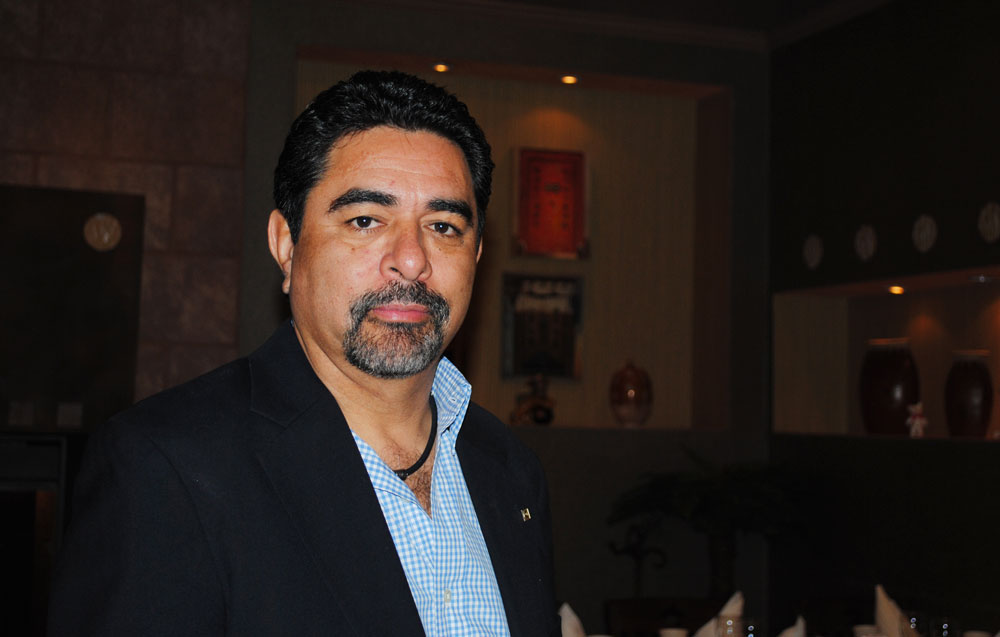EL PASO – Drug-war violence has crippled the economy of Cd. Juárez sending many business owners packing along with their customers, to the safer sister city across the border.
El Paso has become the beneficiary of that middle-class migration since the criminal activity began to escalate in 2008.
Ke’ Flauta, for example, a restaurant in west El Paso, is one of many businesses that has fled from its original location in Juárez. “Unfortunately, Juárez has gotten hit very badly with the violence. The economy is greatly affected and there are scary threats from extortionists against businesses all the time,” said Raul Aguilar, owner of Ke’ Flauta.

Restaurant Ke' Flauta at 5100 Doniphan Drive, West El Paso. (Beatriz Castañeda/Borderzine.com)
Aguilar started his Juarez business about four years ago and this month marks its second year anniversary here. At Ke’ Flauta, customers have their choice of typical Juarense delights – flautas and a selection of tacos, and different tortas.
Juárez Chamber of Commerce President Daniel Murguia told Borderzine that at least 6,000 city businesses closed in 2010, according to Mexican Interior Ministry figures.
Aguilar said many Americans used to travel to Juárez and enjoy the Mexican eateries, but now, he said, restaurants are coming across the border to find their customers.
“People are finding an alternative. Most do not travel to Juárez anymore so the practical thing is to offer them our product here in El Paso,” Aguilar said.
Other types of businesses have not been greatly affected by the violence in Juárez and have also moved or expanded to the U.S. Those who used to shape the entertainment scene in Juárez have kept the party going by bringing their business over here.
Pockets Billiards & Fun opened up shop in El Paso three years ago on Zaragoza Rd. and a second location on N. Mesa Street has been in business for two months. Pockets also successfully expanded to other Mexican cities such as Tijuana, Mexicali and Mexico City.
“We came to El Paso for the expansion,” said Franz L. Ortega, general manager of Pockets. “It wasn’t so much because of the violence, and it’s nice because people can have fun without going to Juárez anymore.”
La Red, a local political organization has helped Mexican businesses start up in El Paso and has also provided legal advice and helped them deal with immigration agencies.

José Luis Mauricio, President of La Red. (Beatriz Castañeda/Borderzine.com)
President of La Red and publisher of Ser Empresario magazine, José Luis Mauricio said this immigration is also bringing lawyers, architects, and engineers. Mauricio said they contribute to the local economy by bringing jobs, paying taxes, and ultimately creating new jobs as well.
“I believe this opportunity is contributing much with entrepreneurs and this situation will make El Paso better,” Mauricio said.
“With the incorporation of these new businesses, El Paso will be expanded and will create much opportunity and innovation, which will have creativity as well as competition,” he said.
Mauricio said the new businesses contribute to the community. He also said El Paso should see this as integration between the two cities because this will create a progression between businessmen from both sides of the border. “We will have more solidarity,” he said.
Local real estate broker and developer Walter Passero said this is something beneficial for El Paso’s community. “Regardless of the circumstances, we are very fortunate for people to be coming to El Paso investing their money, hiring people and venturing into our economy,” Passero said. “Definitely puts more money in our economy, and there is no question about that.”
_____
Editor’s Note – This is another in a continuing series of Borderzine articles on the migration to the U.S. of Mexican middle-class professionals and business owners as a result of the drug-war violence along the border. We call this transfer of people and resources, the largest since the Mexican Revolution, the Mexodus.

